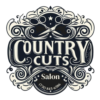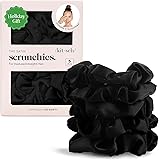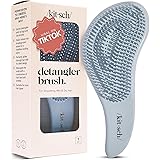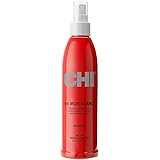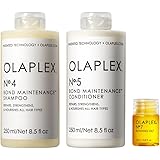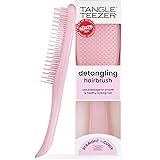Introduction
Hair health is not static; it is intricately linked to the changing seasons. With each transition from winter to spring, and summer to autumn, our hair encounters diverse environmental factors that can significantly impact its condition. Temperature fluctuations, humidity levels, and varying levels of sunlight exposure all play a substantial role in how our hair reacts and thrives throughout the year.
Adapting hair care routines to correspond with seasonal climate conditions is vital for maintaining vibrant, healthy hair. For instance, during the colder months, low humidity and indoor heating can exacerbate dryness, leading to brittle strands and increased chances of breakage. Conversely, the summer months bring about high humidity and intense UV rays, which can cause excess frizz and fade color-treated hair. Neglecting to adjust our hair care practices according to these seasonal changes can ultimately result in a host of common hair issues.
It is essential to acknowledge that poor hair health is not merely a cosmetic concern; dry, frizzy, or damaged hair can lead to reduced self-esteem and confidence. Therefore, being proactive in recognizing the seasonal impact on hair not only enhances its appearance but also fosters emotional well-being. By implementing tailored strategies specific to each season, individuals can combat the adverse effects brought on by weather changes.
This blog post aims to provide valuable tips and strategies designed to help readers maintain their hair’s health, regardless of the season. From protective measures in the winter to hydration techniques in the summer, the following sections will delve into actionable advice that can help preserve hair vitality throughout the year. Stay tuned as we explore how to nurture your hair effectively, ensuring it remains beautiful and resilient, no matter the climate.
Understanding Seasonal Effects on Hair
The health of hair is significantly influenced by seasonal changes, with each season presenting unique challenges and effects. During winter, cold air often leads to decreased humidity levels, which can strip hair of its natural moisture. This loss of hydration may result in dry, brittle hair and an increase in split ends. Additionally, frequent exposure to heated indoor environments can exacerbate the dehydration, causing the scalp to become itchy and flaky. The biological mechanism at play here involves the hair cuticle, which can lift when moisture is insufficient, leading to a dull appearance and lack of elasticity.
In contrast, summer brings warmth and increased humidity, which can have both positive and negative effects on hair health. High humidity can enhance natural curls and waves, allowing for a more textured look. However, excessive heat can also lead to sun damage, where UV rays break down the protein structure of the hair. This photodamage dulls hair color and weakens strands, making them more prone to breakage. Moreover, summer often results in sweat buildup on the scalp, which can clog hair follicles and potentially lead to dermatitis or other scalp issues.
Spring introduces a moderate climate that often promotes hair growth, but it can also be a time for allergy sufferers. Pollen in the air can trigger reactions that affect the scalp, leading to inflammation and discomfort. As the temperature fluctuates, this can cause the scalp to produce excessive oil as a response to increased activity, which might result in greasiness and a need for frequent washing.
Ultimately, harnessing an understanding of these seasonal effects will empower individuals to adapt their hair care routines to maintain optimal hair health throughout the year. Knowledge of how environmental changes impact the biological mechanisms of hair is crucial for making informed choices when it comes to hair care products and practices.
Spring Hair Care Tips
As the spring season arrives, the changing weather can impact the health of your hair. With rising humidity levels, it is essential to adjust your hair care routine to maintain vitality and ensure your locks remain nourished. One of the first steps to consider is the use of lightweight shampoos and conditioners. These products are specifically designed to cleanse without stripping the hair of its natural oils, thus preventing the potential weigh-down that can occur with heavier formulations.
Alongside the right products, it is vital to focus on the scalp’s health. Winter can leave buildup from products and dryness, so incorporating scalp exfoliation into your routine is beneficial. This practice helps to remove dead skin cells and revive your scalp, promoting a healthier environment for hair growth. You can opt for gentle exfoliating shampoos or natural remedies such as a mixture of sugar and your usual shampoo to create an effective scrub.
Another effective spring hair care tip involves the introduction of hydrating hair masks into your regimen. These masks provide deep moisture that is crucial for maintaining healthy hair during the transition from the dry winter months. Look for masks that contain natural ingredients known for their hydrating properties, such as aloe vera or coconut oil, to truly revitalize your hair.
Additionally, embracing seasonal ingredients can enhance your hair care routine. Incorporating fruits like avocados or bananas, along with botanical oils such as argan or jojoba oil, can enrich your treatments and add necessary nutrients. Such natural components are not only beneficial for your hair’s overall health, but they also promote shine and manageability, making your hair care routine easier and more enjoyable as the weather warms up.
Summer Hair Care Tips
The summer months can be particularly demanding for hair, as the combination of heat, humidity, and exposure to sunlight can lead to dryness, color fading, and damage. Therefore, it is essential to implement effective strategies to maintain healthy hair during this season. One of the primary concerns is sun protection; just as the skin requires safeguarding against UV rays, so too does hair. Choosing hair care products that contain UV filters can provide a protective barrier against sun damage. Additionally, wearing a wide-brimmed hat while outdoors not only offers shade for the face and neck but also acts as a physical barrier for hair, minimizing exposure to harsh sunlight.
Hydration plays a crucial role in maintaining hair health during the summer. This hydration should be approached from two angles. First, using leave-in conditioners or hydrating hair sprays can add moisture and restore vitality to dry, sun-exposed locks. These products typically contain nourishing ingredients that help replenish lost moisture. Secondly, it is important to stay hydrated internally by drinking sufficient water throughout the day. Proper hydration enhances overall health, which reflects in the appearance and texture of your hair.
Regular trims are essential during summer to prevent split ends from worsening. It is advisable to schedule a trim every six to eight weeks, as this helps to keep hair looking healthy and well-groomed. Moreover, for those who indulge in swimming, whether in chlorinated or salted water, take precautions to protect your hair. Rinsing hair with fresh water before swimming can create a buffer against chlorine or salt absorption. Using a swim cap can further reduce the amount of exposure to these elements. By following these summer hair care tips, individuals can enjoy vibrant, healthy hair that withstands the seasonal challenges.
Autumn Hair Care Tips
As the temperatures begin to drop and the leaves turn, the transition into autumn often brings unique challenges for hair care. This seasonal shift can lead to increased dryness and frizz, necessitating a more attentive approach to maintaining hair health. To effectively prepare your hair for the fall season, it is essential to adapt your hair care routine to counteract these challenges.
One significant change that can be beneficial is the use of richer, moisturizing products. Look for shampoos and conditioners that contain nourishing ingredients such as shea butter, coconut oil, or argan oil. These ingredients are particularly effective in locking in moisture, which helps to combat the drying effects of cooler fall weather. In addition, switching to a creamier conditioner can enhance moisture retention, providing your hair with the hydration it needs to remain soft and manageable.
Implementing deep-conditioning treatments into your weekly routine can also provide an extra boost of nourishment. Consider using a deep-conditioning mask once a week to help restore moisture and elasticity. This is especially crucial during fall, as hair tends to become more brittle with the cooler temperatures and reduced humidity levels.
As autumn progresses and hair naturally starts to shed more, it is imperative to brush with care to minimize breakage. Use a wide-toothed comb or a brush designed to reduce pulling on the hair. These tools can make detangling easier and help preserve the integrity of your strands. Remember to brush gently, starting from the ends and working your way up to the roots. This method will not only reduce the risk of damage but also promote healthier hair as you navigate the challenges that autumn weather presents.
Winter Hair Care Tips
During the winter months, maintaining healthy hair can be particularly challenging due to the cold, dry air that can strip moisture from both hair and scalp. To combat these harsh conditions, it is essential to incorporate heavy, moisturizing products into your hair care routine. Oils such as argan, jojoba, or coconut can effectively penetrate the hair shaft and provide deep hydration. Additionally, using leave-in conditioners can help seal in moisture, offering a protective barrier against dry winter air.
Protective hairstyles are also a significant factor in maintaining hair health during winter. Styles such as braids, buns, or twists can minimize hair exposure to frigid temperatures, thereby reducing the risk of breakage or split ends. It is advisable to avoid styles that pull on the hair too tightly, as this can lead to traction alopecia over time. Instead, opt for loose protective styles that allow the hair to rest while retaining its moisture.
In terms of hydration, both hair and scalp benefit from the use of moisture-retaining caps and humidifiers. Moisture caps, particularly those infused with natural oils, can be worn overnight and help to lock in hydration. Using a humidifier indoors can also significantly increase the ambient moisture levels, making it easier to keep hair hydrated during the dry season.
Another critical aspect of winter hair care is to minimize the use of hot styling tools. Excessive heat can further dry out hair and lead to irreversible damage. Instead of blow-drying or straightening, consider letting your hair air dry whenever possible and embracing its natural texture. By taking these steps, you can ensure that your hair remains healthy and vibrant throughout the cold winter months.
Essential Hair Care Products for Seasonal Changes
Maintaining healthy hair throughout the changing seasons can be achieved by using the right hair care products tailored to specific needs. Here is a compilation of recommended products categorized by type, each selected for their effectiveness in addressing various hair challenges encountered with seasonal transitions.
During the spring, when hair often faces increased humidity, a lightweight shampoo and conditioner are beneficial. Products such as the Pureology Hydrate Shampoo and Conditioner help maintain moisture without weighing hair down. For additional hydration, consider a leave-in conditioner like It’s a 10 Miracle Leave-In Product, which nourishes all hair types while providing UV protection.
In summer, protection from sun damage and chlorine becomes crucial. Opt for a sulfate-free shampoo such as Bumble and Bumble Sun Shampoo to remove chlorine and excess salt without harming the hair. A deep conditioning hair mask, like Moroccanoil Intense Hydrating Mask, should be incorporated weekly to counteract the drying effects of sun exposure.
As fall approaches, a balance between moisture and nourishment is key. Consider products like Ouidad Curl Quencher Moisturizing Shampoo and Conditioner for textured hair types. To restore shine, using a serum such as John Frieda Frizz Ease Extra Strength Serum can help smooth the hair cuticle and aid in combatting the drying fall winds.
Winter brings harsh conditions that can leave hair brittle. A rich, moisturizing shampoo like SheaMoisture Raw Shea Butter Moisture Retention Shampoo should be paired with a heavy conditioner. Using oils, such as argan oil or coconut oil, as a pre-shampoo treatment can also provide intense hydration and protection.
By aligning the right hair care products with seasonal conditions, maintaining healthy hair throughout the year becomes achievable, ensuring that your locks shine with vitality regardless of the weather.
Lifestyle Changes to Support Hair Health
Maintaining healthy hair is deeply intertwined with one’s overall lifestyle choices. A well-rounded approach encompasses not only external hair care products but also the internal factors that nourish hair growth and strength. One of the foremost considerations is diet; the foods we consume play a pivotal role in the vitality of our hair. Incorporating a variety of vitamins and minerals, such as Biotin, Vitamin D, and Iron, can significantly impact hair health. Foods rich in these nutrients, like leafy greens, nuts, and lean proteins, should be integral to one’s diet.
Hydration is another cornerstone of hair health. Drinking an adequate amount of water daily helps maintain moisture levels not only in the body but also within the hair strands. Dehydrated hair can become brittle and more susceptible to damage, making regular hydration essential for maintaining its elasticity and shine. In addition to these inputs, managing stress is crucial; elevated stress levels are frequently linked to hair loss and poor hair health. Engaging in relaxation techniques such as meditation, yoga, or even simple breathing exercises can alleviate stress significantly, thereby supporting overall wellness and, consequently, hair vitality.
Sleep patterns also influence hair health. During sleep, the body undergoes repair processes, including those affecting hair follicles. Aiming for 7-9 hours of quality sleep each night can promote optimal hair growth. Moreover, considerate hair care habits should not be overlooked. Limiting the use of heat styling tools, which can lead to hair damage over time, as well as avoiding over-washing, allows natural oils to nourish the hair. Adopting a holistic approach to health through balanced nutrition, adequate hydration, effective stress management, and proper hair care routines can foster strong, healthy hair year-round.
Common Mistakes to Avoid During Seasonal Transitions
As the seasons change, so too should our approach to hair care. Common mistakes made during these transitions can hinder your hair’s health and vibrancy. One prevalent pitfall is neglecting to adjust your hair care routine to accommodate the new environmental conditions. For instance, during colder months, people often forget to incorporate more moisturizing products, leading to dryness and brittleness. By being aware of these changes and adapting accordingly, you can better support your hair’s needs.
Another mistake is the overuse of heating tools. While styling tools such as flat irons and curling wands may be essential for creating your desired look, excessive use can drastically damage hair, especially when transitioning from hot summer conditions to cooler weather. It is crucial to limit their usage and opt for heat protectants whenever styling is necessary, to mitigate the potential harm from heat exposure.
Skipping regular trims is another common issue many individuals face. During seasonal transitions, some may think the need for a haircut diminishes; however, neglecting to remove split ends can result in more significant dilemmas down the line. Frequent trims not only improve the overall health and appearance of your hair but also promote growth. Scheduling routine appointments throughout the year helps maintain your hair’s integrity.
Additionally, not protecting hair while swimming, especially in chlorinated pools, can lead to increased damage. Chlorine and saltwater can strip hair of its natural oils, resulting in dry, lifeless strands. Using protective oils or wearing a swim cap can mitigate these effects significantly. By infusing your practices with knowledge and understanding the implications of seasonal changes, you can avoid these common mistakes and enhance your hair care outcomes throughout the year.
Conclusion
Seasonal hair care is crucial to maintaining healthy hair throughout the year. Throughout this blog post, we have explored various strategies tailored to different seasonal challenges. From understanding how winter’s cold, dry air can lead to moisture loss to addressing the damaging effects of summer sun and humidity, it is essential to adapt one’s hair care routine according to the season. Selecting appropriate products that align with the specific needs of your hair type can significantly enhance its overall health.
Additionally, we discussed the importance of maintaining a balanced diet rich in vitamins and minerals that promote hair growth and strength. Incorporating protective hairstyles during the winter months, as well as implementing sun protection for your hair during summer, also play vital roles in safeguarding its texture and vitality. By actively engaging with these practices, individuals can better respond to the ever-changing environmental factors that impact hair health.
As you consider your own hair care regimen, it’s important to reflect on your unique hair type and lifestyle. This understanding will empower you to make informed choices that respect the natural characteristics of your hair. Regularly assessing the conditions of your hair and adjusting your routine accordingly can yield remarkable long-term benefits. Beautiful, healthy hair is within reach when you prioritize informed and consistent care. Embrace the seasons with a proactive attitude toward your hair care, and witness the positive transformation that can unfold throughout the year.
